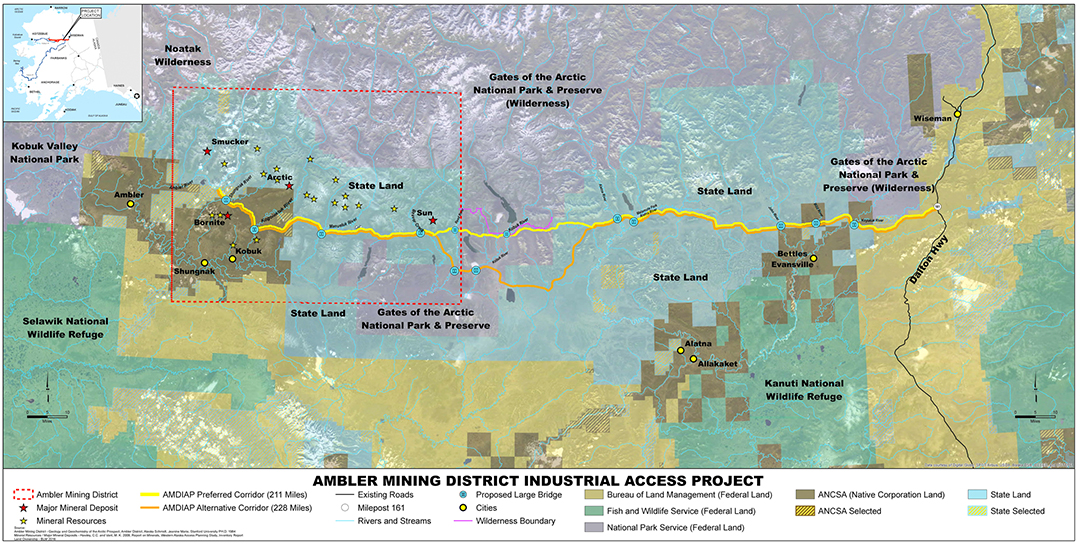
It is described as America’s ultimate wilderness and a place where outsiders go to seek solitude, but, ever since 1980, and the passage of a piece of federal legislation known as the Alaska National Interest Lands Conservation Act, or ANILCA for short, the Gates of the Arctic National Park has been something of a legal battleground.
That law, signed by Jimmy Carter, a Democratic president, sought to balance opening up the state to exploitation of its natural resources with protecting a natural environment that continues to support the livelihoods of many Alaskans. The great compromise, as it was known, established 10 federal land set-asides throughout Alaska, yet also granted some forms of social and economic activity the right to access these areas.
In the Gates of the Arctic, the discussion centres on what is known as the Ambler Access Project, a 300km controlled-access road running along the southern edge of the Brooks Range that has been in the works since 2009. The road is necessary for opening up an area known as Ambler Mining District that proponents say can provide a steady supply of a range metals that America’s technology and defence industries must currently import. Locally, the road would mean jobs by thousands.
All that had been more than enough argument for the previous administration to wave the road on in July 2020, but on 22 February, the Justice Department asked a federal judge in Alaska to temporarily revoke the approval so it could reassess its impact. It is concerned that not enough scrutiny was given to the potential effects the road would have on the indigenous lands it would cut through, as well as the 100km or so of federal lands, half of which would be inside the Gates of the Arctic, that it would be allowed to cross thanks to ANLICA.
The order is similar to a legal complaint that was lodged by conservation groups shortly after the 2020 approval. Most worrisome, they say, is that the gravel needed for the road itself will be sourced locally, resulting in pits being dug every 15km, and that the impact of this was not looked at in the review. But, they also say other aspects of the project, like the construction of maintenance stations, work camps, bridges and airstrips mean that it is not just a road that is being built.
Alaska’s lawmakers in Juneau and Washington have said they will continue to push for the road’s approval, but, at least for now, the road to the Gates of the Arctic remains only their intention.
Kevin McGwin, PolarJournal
Featured image: National Parks Service / Cadence Cook
More about this topic





